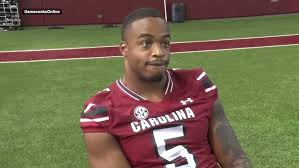Family Legacy and Rule-Making Responsibility
For decades, the Bears’ ownership has played an active role in shaping league policies. This tradition of deliberate intervention at owners meetings underlines a commitment to the evolution of the sport. The influential figure at the heart of these discussions is George McCaskey. His decisive vote on proposed league changes reflects not only responsibility but also a clear vision aimed at leveraging the team’s unique strengths.
Embracing the New Kick Return Rule
One proposal poised to impact gameplay centers on adjusting the touchback line from the 30-yard mark to the 35-yard mark during kickoffs. This seemingly modest shift is anticipated to result in a substantial increase in kick returns, potentially raising the return rate to 50% or more. The Bears are well positioned to capitalize on this change, thanks to a specialized focus on special teams. Under the guidance of coordinator Richard Hightower, whose work in drafting an XFL-style kickoff rule already raised the intensity of returns, the team expects to see a resurgence in dynamic plays. The integration of talent like Devin Duvernay—an athlete celebrated for his explosive speed despite previous setbacks due to injuries and team challenges—reinforces the club’s readiness to leverage these rules for competitive advantage.
Navigating the Shifts in Playoff Seeding
Another proposed rule change targets the criteria for playoff seedings. This change would discard traditional considerations of division titles, instead allocating playoff home fields strictly by record. Proponents of the adjustment view it as a boost toward fairness by eliminating irregularities in home-field advantage. However, for teams steeped in rich divisional rivalries and traditions, such as the Bears, this approach risks diluting the significance of hard-fought division victories. With historical rivalries deeply embedded in the sport’s culture, preserving the spirit of the regular season remains paramount. The Bears’ stance against this rule is rooted in a desire to maintain a reward system that celebrates consistent excellence and the undeniable value of division titles.
Tradition and the Changing Landscape
The conversation about potential changes underscores a broader tension between modernizing aspects of the game and honoring its storied heritage. As leagues experiment with new ideas—often borrowing concepts from alternative formats like rugby—the delicate balance between innovation and tradition becomes critical. Fans and experts alike express concern that diminishing the prestige of division titles might erode the essence of competitive football. By holding fast to time-honored practices, the Bears advocate for a league structure that values both forward-thinking strategies and the intrinsic traditions that have defined the sport’s most memorable rivalries.
Recalibrating a Controversial Play
In parallel discussions, another contentious proposal involves eliminating the “tush push” play—a maneuver that critics argue strays too far from the fundamentals of football. This play, likened by some to a modern variant of the dangerous flying wedge, is seen by detractors as both unexciting and contrary to the established norms of blocking and fair play. The call for its removal is grounded in concerns over player safety and the sport’s aesthetic appeal. The argument posits that the essence of football lies in executing well-planned blocks and strategic plays rather than exploiting a move that offers an undue advantage. In essence, reevaluating such tactics reflects a broader commitment to maintaining the integrity and excitement of the game.
Each of these proposals carries implications that extend well beyond rulebooks. They highlight how decisions made at the upper echelons of team ownership and league governance can reshape not just strategies on the field, but the very experience of the sport itself. As the Bears prepare to cast their votes, the outcome will reverberate across the league, influencing both play style and the cherished traditions that make football a timeless spectacle.









